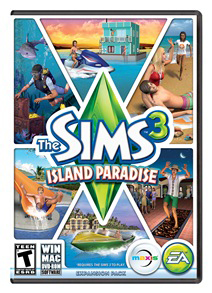
In the vibrant world of "The Sims," where creativity knows no bounds, an ardent enthusiast takes us on a journey through captivating narratives and thrilling challenges. As a dedicated storyteller, this individual understands the profound impact storytelling has on enhancing the Sims experience for players. Let's unravel the psychology behind immersive gameplay and the art of crafting compelling Sims stories.
The Psychology of Immersive Gameplay:

Immersive gameplay in "The Sims" goes beyond mere virtual escapism; it taps into fundamental psychological principles. Our storyteller, like many in the community, leverages the concept of "narrative transportation." This psychological phenomenon occurs when individuals become so engrossed in a story that their emotional and cognitive responses mirror those of the characters within the narrative.
Engaging Sims stories act as a conduit, transporting players into a world where their choices matter, creating a sense of agency and emotional investment. This psychological immersion not only enriches the gaming experience but also fosters a deeper connection between the player and the virtual world they inhabit.
Crafting Unique Scenarios:
Our storyteller excels in crafting unique scenarios that challenge players to think beyond the conventional gameplay. This mirrors the psychological concept of "cognitive dissonance," where individuals experience discomfort when faced with conflicting beliefs or behaviors. In the Sims community, this discomfort can arise when players confront unexpected challenges within the game.
By introducing unconventional scenarios, such as unexpected plot twists or challenging gameplay restrictions, storytellers stimulate cognitive dissonance, prompting players to reevaluate their strategies and adapt to unforeseen circumstances. This not only adds excitement to the gameplay but also fosters cognitive flexibility and problem-solving skills.
Thrilling Gameplay Challenges:
The enthusiasm for gameplay challenges aligns with the psychological concept of "flow," coined by psychologist Mihaly Csikszentmihalyi. Flow occurs when individuals are fully immersed in an activity, experiencing a state of focused concentration and enjoyment. Sims challenges, carefully curated by storytellers, provide players with a roadmap to achieve this optimal state of flow.
The key lies in balancing the level of challenge with the player's skill set. Too easy, and boredom ensues; too difficult, and frustration sets in. Our storyteller's challenges strike the perfect balance, guiding players through an engaging journey that aligns with their abilities while pushing them to explore new facets of gameplay.
The Endless Possibilities of Storytelling:
Dedication to exploring the endless possibilities of storytelling mirrors the psychological concept of "parasocial interaction." This phenomenon describes the one-sided relationship individuals form with media personalities or fictional characters. In the Sims community, storytellers become the architects of these parasocial relationships.
Players invest emotionally in the characters and stories woven by storytellers, creating a sense of connection and camaraderie. This not only enhances the Sims experience but also fosters a supportive and collaborative community where players share their own stories and challenges.
Conclusion:
In conclusion, our dedicated storyteller exemplifies the art of storytelling in "The Sims," leveraging psychological principles to create an immersive and enriching experience. As we navigate the virtual landscapes of Sims stories and challenges, we discover the profound impact these narratives have on our cognitive, emotional, and social well-being within the gaming community.
Unveiling the psychology behind immersive gameplay, unique scenarios, and thrilling challenges, this storyteller invites us to embrace the transformative power of storytelling in "The Sims." So, let your imagination soar, embark on unique adventures, and become part of the ever-evolving tapestry of Sims narratives.

In recent years, the rise of social networks has become an integral part of our daily lives. These platforms have revolutionized the way we connect, communicate, and interact with one another. But what happens when social networks collide with simulated worlds and virtual realities? The impact is profound, transforming the way we experience and engage with these digital realms like in case of Tiktok likes kopen if using in Netherlands.
About stimulated worlds
Simulated worlds are virtual environments that allow users to immerse themselves in a different reality. These worlds often come in the form of video games, virtual reality platforms, or online communities where millions of users can interact and explore together. However, what sets these simulated worlds apart from traditional video games is the integration of social networks.
With the integration of social networks in simulated worlds, users can connect and communicate with people from all over the globe, forming communities, and building relationships. They can share experiences, exchange ideas, and collaborate on various in-game tasks and challenges. This level of connectivity and interaction has transformed simulated worlds into thriving online communities, creating a sense of belonging that transcends geographical boundaries.
Impacts of social networks in Netherlands
Augmented sense of socialization
One of the most significant impacts of social networks in simulated worlds is the augmented sense of socialization and camaraderie. Traditionally, video games were often perceived as solitary activities where players would immerse themselves in a fictional world alone. However, with the addition of social networks, simulated worlds have now become a collaborative experience, promoting teamwork and social interaction.

Easy connection
Through the use of chat features, voice communication, and social media integration, players can easily connect with one another, form friendships, and engage in real-time conversations. This level of connectivity has not only revolutionized the way we play but has also led to the development of e-sports and competitive gaming, where players from different parts of the world can come together to compete and showcase their skills.
Positive impact on mental health
Moreover, social networks in simulated worlds have also proven to have a positive impact on mental health. These platforms provide a safe space for individuals to express themselves, explore their identities, and connect with like-minded individuals. Simulated worlds act as an escape from reality, allowing users to unwind, alleviate stress, and find solace in a community that shares their interests and passions.
Exchange of expertise
Additionally, social networks have also facilitated the exchange of knowledge and expertise within simulated worlds. Through user-created forums, wikis, and video tutorials, players can learn from one another, share strategies, and discover hidden secrets within these virtual realms. This level of collaboration and information-sharing in Netherlands has resulted in a more inclusive and accessible gaming experience, where newcomers can feel empowered and supported by experienced players.
Conclusion
The integration of social networks in simulated worlds has had a profound impact on the way we engage with these virtual realms. It has transformed solitary gaming experiences into thriving communities, fostering social interaction, collaboration, and a sense of belonging. However, it is crucial to be mindful of the potential pitfalls and ensure a healthy balance between the digital and physical worlds. As technology continues to advance, the impact of social networks in simulated worlds is only expected to grow, shaping the future of online communities and virtual realities.




















